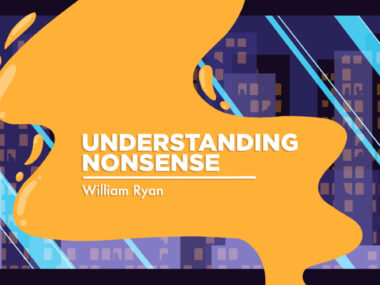What’s ahead for the disabled if we don’t change policies
Faulty beliefs about autism and other conditions are bad for the US
Written by |

The current United States is, in many ways, not the United States where I grew up. In my view, our sense of decorum has changed. Given that, I’m concerned about communities of marginalized people who, in my lifetime, have had to fight for fair and equal rights. I’m thinking of the LGBTQIA+ community, immigrants, or the group I’m in: the disabled.
As an adult with cystic fibrosis (CF), I’ve benefited from the great work and research produced by the National Institutes of Health and the Centers for Disease Control and Prevention, which have guided CF from its status as a childhood disease to one that allows people in my generation to live into their senior years.
They’ve also helped pharmaceutical companies such as Vertex Pharmaceuticals develop CF modulators, including Trikafta (elexacaftor/tezacaftor/ivacaftor) and the one I take, Alyftrek (vanzacaftor/tezacaftor/deutivacaftor). Along with that, the Affordable Care Act has allowed millions of Americans, including those with CF, to have health insurance to ease the burden of medical care within the United States.
Today, however, the executive branch of our government is dismantling much of the scientific research that benefits disabled communities; eliminating protections for minorities that fit under diversity, equity, and inclusion (DEI) programs; and, in several cases, not protecting due process, which is granted under our Constitution. If you haven’t been paying close attention, let me give you a SparkNotes version of what’s going on.
Let’s advance, not mislead
The administration has removed DEI policies from many government departments, such as the military, and encouraged its removal in the private sector, such as in education. This policy is changing our identity as a welcoming melting pot of rich cultures and perspectives, coming together to make our communities and the world better.
All disabled communities, whether rich or poor, need respect for diversity, equity, and inclusion to survive and thrive within this society. I’ve benefited greatly from such values, going back to when I was given my CF medicine in preschool before I ate lunch. I was never isolated because of my disease. I was treated just like any other child, and within a diverse class, I was able to thrive.
Today, however, I’m concerned that our top health official, Secretary Robert F. Kennedy Jr., calls autism an epidemic that destroys families, and that he wants to amass a national government database of autistic Americans. It makes me want us all to immerse ourselves in understanding our privacy rights and liberties.
I wouldn’t want a national government database of all people with CF. I can already foresee the conspiracy theories about CF’s causes and other possible assumptions by the able-bodied community or those who don’t know any better. To my mind, they’d just transfer mistaken beliefs about autism to CF or any other rare disease. CF is caused by two parents who each have a mutated CFTR gene, coming together and having a child who inherits it. That’s it.
Kennedy says he wants to discover the environmental causes of autism; he’s spent years asserting a link between vaccines and autism that almost all research insists does not exist. Andrew Wakefield, who supported the claims in The Lancet in 1998, is often quoted by Kennedy. But The Lancet retracted Wakefield’s article in 2010.
As our health and human services secretary, Kennedy should take the time to think about how harmful his language and views have been to many disabled Americans. Comedian George Carlin once said that America leadership is a big club and “you ain’t in it.” I get what he meant; I think it applies to the disabled, too. As a person with CF, I’m going to keep knocking on the door until the club lets me and my fellow disabled Americans back in. The only way to keep moving forward is to move forward.
Note: Cystic Fibrosis News Today is strictly a news and information website about the disease. It does not provide medical advice, diagnosis, or treatment. This content is not intended to be a substitute for professional medical advice, diagnosis, or treatment. Always seek the advice of your physician or other qualified health provider with any questions you may have regarding a medical condition. Never disregard professional medical advice or delay in seeking it because of something you have read on this website. The opinions expressed in this column are not those of Cystic Fibrosis News Today or its parent company, Bionews, and are intended to spark discussion about issues pertaining to cystic fibrosis.







Helen Palmiero
Hi Will! Great to see you writing here again! I have to say - in short, I agree with you 100%. I say "short" because I can't give a detailed opinion on things I don't know too much about. I am however, so thankful that Aleftryk was able to be researched and approved and you're taking it. I pray the best for you always. Love, Helen